I watched that fairly recently and loved it, I think you saw my review. JayDee, we have more in common than you want to admit! 


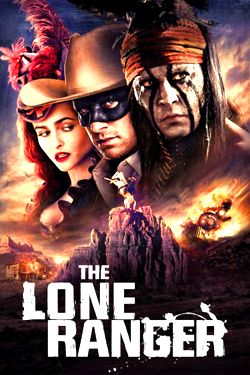
|
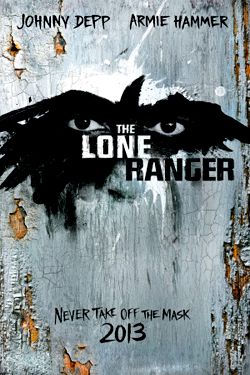
|
 ). On a number of occasions I've heard and seen sculptors talk about how the sculpture is already fully formed within the block of marble (or whatever material they are using); their job is just to remove the unnecessary pieces to reveal it. I think there is a good summer blockbuster in here somewhere; they just had to chisel away a few more rough edges. Amongst the film's pluses are the fact that it does actually have a couple of very entertaining set-pieces in its arsenal; large-scale sequences which feature the occasional spark of creativity and evoke the madcap logic of a Tex Avery cartoon. And thanks to the efforts of Depp as Tonto, and Silver (aka the comedy horse), there are a few laughs to be found. The film does also look rather fantastic on occasion, the cinematography of Bojan Bazelli evoking classic westerns of old with its endless expanses of desert and sweeping sky of a canvas.
). On a number of occasions I've heard and seen sculptors talk about how the sculpture is already fully formed within the block of marble (or whatever material they are using); their job is just to remove the unnecessary pieces to reveal it. I think there is a good summer blockbuster in here somewhere; they just had to chisel away a few more rough edges. Amongst the film's pluses are the fact that it does actually have a couple of very entertaining set-pieces in its arsenal; large-scale sequences which feature the occasional spark of creativity and evoke the madcap logic of a Tex Avery cartoon. And thanks to the efforts of Depp as Tonto, and Silver (aka the comedy horse), there are a few laughs to be found. The film does also look rather fantastic on occasion, the cinematography of Bojan Bazelli evoking classic westerns of old with its endless expanses of desert and sweeping sky of a canvas. 

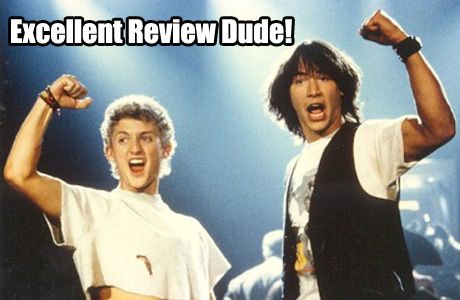

 And you know what, I've no problem with that. Usually I'm one of the rare voices defending derided films like these. As I pointed out in my review for example I really like John Carter despite the critical drubbing it got. The fact that you got so much out of it is great.
And you know what, I've no problem with that. Usually I'm one of the rare voices defending derided films like these. As I pointed out in my review for example I really like John Carter despite the critical drubbing it got. The fact that you got so much out of it is great.
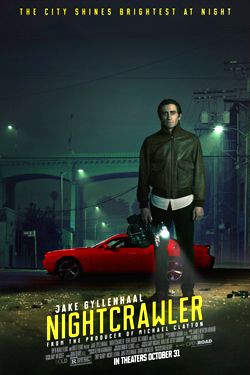
|
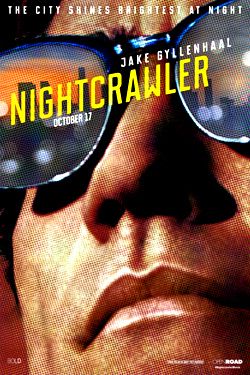
|
 ) but I feel I'd be doing him a disservice if I didn't immediately talk about Jake Gyllenhaal. He gives what is undoubtedly one of the finest showings of his career to date. His performance is unflinching and darkly compelling as he really does lose himself in the character of Lou Bloom, one of the most unlikeable characters to be a movie's protagonist in quite some time. His proclivity for theft aside, Bloom initially presents as a slightly bumbling character of limited intelligence who is more likely to illicit pity more than anything else. He seems to be rather feckless and pretty aimless when it comes to his goals in life. In short he appears to be harmless. As the film progresses however we learn this is most certainly not the case as we discover him to be a truly deranged sociopath with ruthless ambition and no compassion for his fellow man. This is revealed in an excellent scene where he is having dinner with Rene Russo's news director, Nina. Both Nina and the audience believe this is to be a clumsy attempt at romance on his part. Out of nowhere however he does a complete 180° twist and reveals his true nature and intentions. We can now see him for the cunning and manipulative individual he truly is. And when he unveils his true character we realise how much of his previous behaviour was a mere facade and that's when he becomes quite a chilling creation.
) but I feel I'd be doing him a disservice if I didn't immediately talk about Jake Gyllenhaal. He gives what is undoubtedly one of the finest showings of his career to date. His performance is unflinching and darkly compelling as he really does lose himself in the character of Lou Bloom, one of the most unlikeable characters to be a movie's protagonist in quite some time. His proclivity for theft aside, Bloom initially presents as a slightly bumbling character of limited intelligence who is more likely to illicit pity more than anything else. He seems to be rather feckless and pretty aimless when it comes to his goals in life. In short he appears to be harmless. As the film progresses however we learn this is most certainly not the case as we discover him to be a truly deranged sociopath with ruthless ambition and no compassion for his fellow man. This is revealed in an excellent scene where he is having dinner with Rene Russo's news director, Nina. Both Nina and the audience believe this is to be a clumsy attempt at romance on his part. Out of nowhere however he does a complete 180° twist and reveals his true nature and intentions. We can now see him for the cunning and manipulative individual he truly is. And when he unveils his true character we realise how much of his previous behaviour was a mere facade and that's when he becomes quite a chilling creation.

|
|